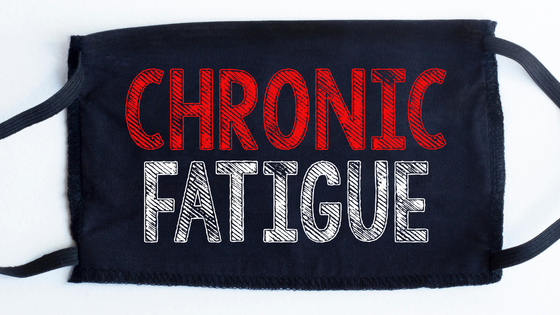No matter how long you have had a chronic illness, you have probably experienced stress from it. Chronic stress can play havoc with your immune system. The longer you have it, the worse this stress gets, especially if you are not taking your mental health seriously and doing something about it. But before we discuss how to ease the effects of stress, let’s discuss what stress is and how it impacts our bodies.
What is Stress?
Stress happens when life’s events surpass your capacity to cope with them. Your body’s stress response is meant to be a short-term insurance plan for your ultimate survival. It’s called the flight or fight response since it’s triggered when you feel threatened. That’s when you need to call upon your body’s resources to either fight the threat or flee from it.
When the threat is only in your mind, your body still responds with all the artillery to allow you to fight it or run away. When the threat remains constantly in your mind, the stress response just never stops. Click To TweetWhen the threat is only in your mind, your body still responds with all the artillery to allow you to fight it or run away. When the threat remains constantly in your mind, the stress response just never stops. It doesn’t return back to baseline.
Chronic Stress
Stress hormones are designed to be released in short-term bursts to help us survive. When these hormones are continuously released, several unwelcome effects occur. These chronic stress hormones set up a sluggish immune system. The result of this stressed immune system is an increased risk of infections.
Chronic Stress and White Blood Cells
When there are continuous stress hormones like cortisol present, lymphocyte numbers go down. Lymphocytes are a type of white blood cell released when germs are detected. This type of white blood cell can help fight viral infections. A low lymphocyte count then allows germs, especially viruses, to multiply quicker.
The simple interpretation is this: when you’re chronically stressed, viral infections multiply faster. This means influenza, common colds, and even coronavirus can get a jump on your immune system.
Chronic Stress and Inflammation
Another effect of cortisol is the limitation of the body’s inflammatory response. If you have long-term high levels of cortisol, the body becomes accustomed to this elevation. This suppression of the immune system can then lead to a chronic inflammatory state. Many organ systems may experience the detrimental effects of chronic inflammation. Autoimmune diseases like lupus, inflammatory bowel disease, and rheumatoid arthritis can result.
What can you do to lower your stress and help your immune system function at its best?
Awareness of Physical Signs of Stress
The first step to reverse chronic stress is to be aware of it. How do you know you’re feeling the effects of chronic stress? Physical signs of chronic stress include fatigue, frequent headaches, and stomachaches. You may also experience recurring intestinal cramps or nausea and diarrhea. Brain fog, muscle aches, and tenderness are often reported, too.
Depression and generalized anxiety can also be the result of chronic stress. You may also get more than the average number of colds and upper respiratory infections. These are all signs your immune system is affected by chronic stress.
Once you’re aware that you’re experiencing chronic stress, what can you do? The good news is, there are some things you can do to calm your mind and body:
Know Your Own Limitations
Everyone with a chronic illness (and without) has their own limitations. Become familiar with yours and recognize them, so you can set boundaries for yourself. Your limitations don’t have to include things that you are never able to do, but rather just some activities with boundaries set.
For example, you might be able to handle shorter walks, but can’t go on a hike or a walk that is longer than 20 minutes. You may have limitations regarding how long you can stand for, where you just need to have a way to get rest. This does affect your stress if you aren’t aware of what you can and can’t do comfortably.
Get Exercise When You Can
Exercise is amazing for stress as it allows you to release endorphins to make you feel happier, and to boost your mood and energy. Any type of physical exercise is helpful. Yoga is particularly effective in lowering stress and cortisol levels. It might not be something you can do every day if you have a chronic illness, but you can definitely take advantage of those good days.
When you wake up feeling less pain than usual or you simply are in a heightened mood with good energy, do a home workout. You can begin a yoga practice by following yoga videos at home. You could also attend local yoga classes. It will do amazing things for your stress levels. Be sure to get medical clearance before beginning any new exercise program.
Practice Mindfulness
A few minutes of mindfulness every day can do wonders for your stress levels. With mindfulness, you are focusing on staying present during those moments, without thinking of the past or the future. For chronic illnesses, it helps you to not focus on your pain or your illness for just a few minutes each day. You can do this whenever you have a moment to be present, such as when you are in the shower or sitting down to eat a meal.
Rest When You Have Flare-Ups
Your pain flare-ups will cause more stress and emotional distress than any other day with your chronic illness, so it is important to give yourself extra rest on those days. More often than not, your stress comes from doing too much or feeling guilty when you haven’t set good boundaries, and never say no to anything. Your body can only handle so much before your mental health starts becoming affected. Make sure your mental and physical health are equal priorities.
If you are looking for more tips and support, join me over on my group page, The Village – A Natural HEALing Community, to get tons of information and tips to help you take your HEALTHY EATING and ACTIVE LIVING to the next level.





+leave a comment . . .